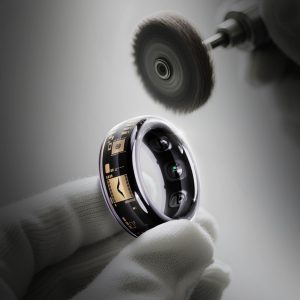In today's rapidly evolving digital landscape, Most accurate HRV monitor has become an indispensable topic that no professional can afford to ignore. Whether you're a beginner or an experienced practitioner, understanding the nuances of Most accurate HRV monitor will provide you with invaluable insights and actionable strategies. This comprehensive guide will explore all aspects of Most accurate HRV monitor, offering you practical knowledge and proven approaches to achieve success.
Understanding Heart Rate Variability (HRV) for Athletic Performance
- HRV reflects the balance of your autonomic nervous system, indicating stress, recovery, and readiness to train.
- RMSSD is crucial for tracking short-term recovery and daily fluctuations.
- SDNN provides insight into overall stress and long-term adaptation.
- Accurate HRV data helps prevent overtraining and guides training intensity adjustments.
Defining Accuracy: What Makes an HRV Monitor ‘Most Accurate'?
- ECG-based sensors generally offer higher accuracy for HRV compared to optical (photoplethysmography) sensors.
- Sophisticated algorithms are essential for filtering noise and accurately calculating HRV metrics.
- Look for devices validated by scientific studies or recognized by sports science professionals.
- Consistency in measurement protocols (time of day, posture) is as critical as device accuracy.
Top 5 Most Accurate HRV Monitors for Athletes in 2025
- Each monitor is selected based on validated accuracy, sensor type, algorithmic sophistication, and user reviews.
- Detailed breakdown of each device's strengths, weaknesses, and ideal user profile.
- Focus on how each monitor captures key HRV metrics (RMSSD, SDNN) reliably for athletic insights.
- Consideration of battery life, data syncing, and compatibility with other training platforms.
Integrating HRV Data into Your Training Regimen in 2025
- Measure your HRV consistently (e.g., upon waking) to establish a personalized baseline.
- A significant drop in daily HRV often indicates poor recovery or increased stress.
- Use HRV data to decide whether to push hard, train moderately, or prioritize rest.
- Integrate HRV insights with data from GPS devices, power meters, and sleep trackers for a holistic view.
Troubleshooting Common HRV Monitoring Pitfalls
- Poor sleep quality or inconsistent sleep schedules can significantly skew HRV readings.
- Factors like alcohol consumption, illness, and even posture can impact your HRV.
- Ensure proper sensor placement and measurement consistency for reliable data.
- Avoid measuring HRV immediately after intense exercise or significant stress.
Conclusion
Through this comprehensive exploration, we have gained valuable insights into all aspects of Most accurate HRV monitor. Mastering this knowledge will help you achieve better results in your related endeavors. Start implementing these strategies today, and you can be confident in achieving your desired outcomes.






